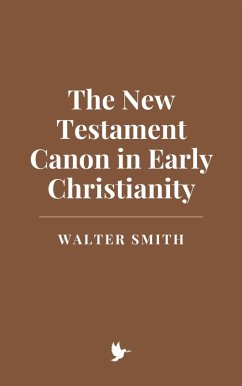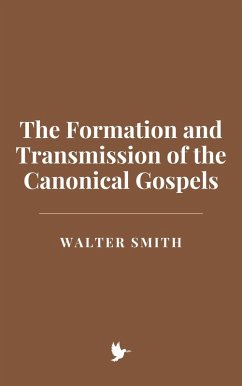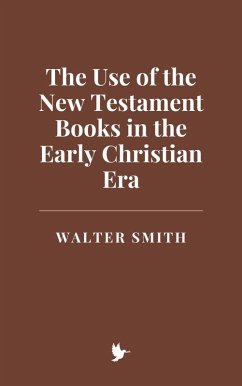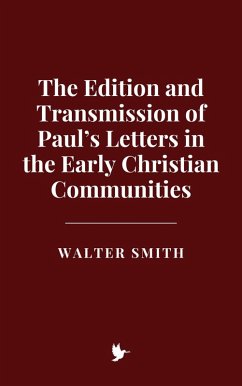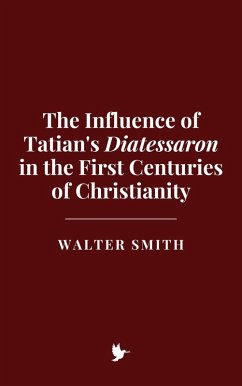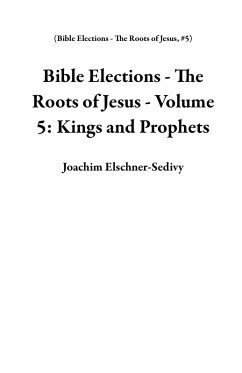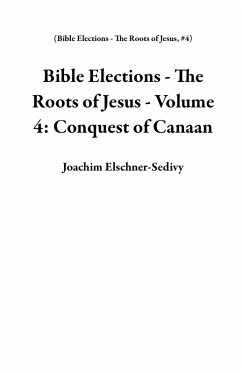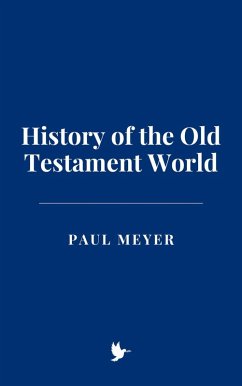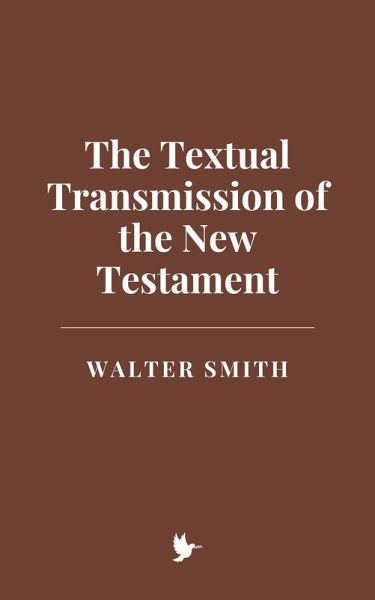
The Textual Transmission of the New Testament (eBook, ePUB)

PAYBACK Punkte
0 °P sammeln!
This book offers a comprehensive exploration of the history, transmission, and analysis of the New Testament, tracing its journey from ancient manuscripts to modern digital technologies. Beginning with the early Christian communities and their efforts to preserve and transmit the teachings of Jesus and the Apostles, the work delves into the complexities of textual transmission, the evolution of biblical canons, and the pivotal role of early Church Fathers in defining authoritative texts. Through detailed analysis of the development of the New Testament canon, the book examines the theological,...
This book offers a comprehensive exploration of the history, transmission, and analysis of the New Testament, tracing its journey from ancient manuscripts to modern digital technologies. Beginning with the early Christian communities and their efforts to preserve and transmit the teachings of Jesus and the Apostles, the work delves into the complexities of textual transmission, the evolution of biblical canons, and the pivotal role of early Church Fathers in defining authoritative texts. Through detailed analysis of the development of the New Testament canon, the book examines the theological, historical, and social forces that shaped the acceptance of specific writings over others.
The book also highlights the technological revolution in biblical scholarship, focusing on the rise of digital tools and their transformative impact on manuscript analysis, textual criticism, and translation. The digitization of ancient manuscripts and the development of databases, artificial intelligence, and machine learning have brought new insights into the study of the New Testament, allowing for a global, collaborative approach to understanding its textual history.
Alongside the technological advancements, the book considers the theological implications of translation and canonization, exploring how modern translations, such as the King James Version, the Revised Standard Version, and others, have shaped Christian doctrine and practice. It addresses the tension between linguistic precision and theological interpretation, particularly in light of the varied cultural and doctrinal perspectives that have influenced Bible translations over the centuries.
In its final chapters, the book looks toward the future of New Testament scholarship, considering how emerging digital technologies and global collaboration will continue to shape the way we engage with Scripture. It reflects on the ongoing challenges and opportunities in preserving and interpreting the New Testament text, underscoring the central role of Scripture in the life of the Church and the ongoing exploration of its meaning in the modern world.
The book also highlights the technological revolution in biblical scholarship, focusing on the rise of digital tools and their transformative impact on manuscript analysis, textual criticism, and translation. The digitization of ancient manuscripts and the development of databases, artificial intelligence, and machine learning have brought new insights into the study of the New Testament, allowing for a global, collaborative approach to understanding its textual history.
Alongside the technological advancements, the book considers the theological implications of translation and canonization, exploring how modern translations, such as the King James Version, the Revised Standard Version, and others, have shaped Christian doctrine and practice. It addresses the tension between linguistic precision and theological interpretation, particularly in light of the varied cultural and doctrinal perspectives that have influenced Bible translations over the centuries.
In its final chapters, the book looks toward the future of New Testament scholarship, considering how emerging digital technologies and global collaboration will continue to shape the way we engage with Scripture. It reflects on the ongoing challenges and opportunities in preserving and interpreting the New Testament text, underscoring the central role of Scripture in the life of the Church and the ongoing exploration of its meaning in the modern world.
Dieser Download kann aus rechtlichen Gründen nur mit Rechnungsadresse in A, B, CY, CZ, D, DK, EW, E, FIN, F, GR, H, IRL, I, LT, L, LR, M, NL, PL, P, R, S, SLO, SK ausgeliefert werden.




